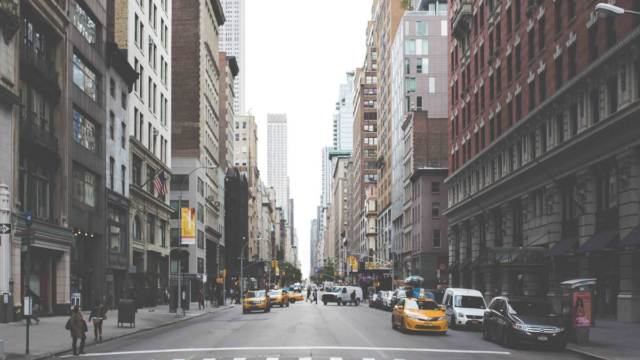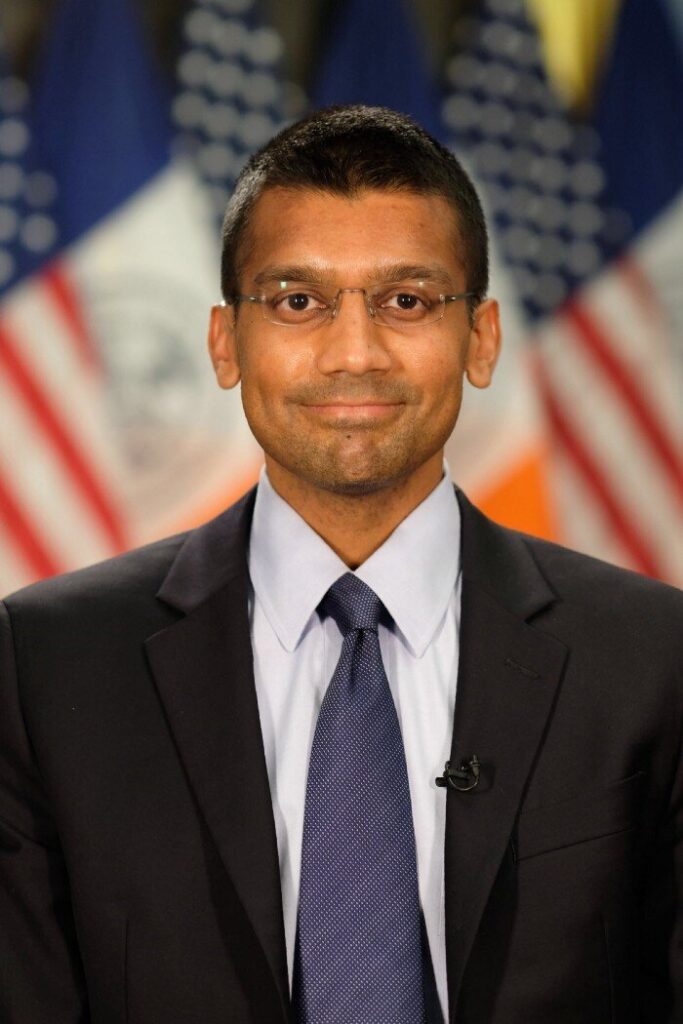Frontline Blog
Protecting the Health and Safety of New York City: A Conversation with Dr. Dave Chokshi
September 2020


Dr. Dave A. Chokshi joined the New York City Department of Health and Mental Hygiene as commissioner in August 2020. Even under normal circumstances, protecting the health and safety of millions of New Yorkers is no easy task. The coronavirus pandemic has presented even greater challenges. The Big Cities Health Coalition team spoke with Dr. Chokshi about his background in public health, his first month on the job, biggest challenges, and his goals for his tenure.
You received your M.D. from Penn, and conducted clinical work in Guatemala, Peru, Botswana, Ghana, and India. How have your experiences and academic credentials in medicine informed your work in public health?
The driving motivation of my career has always been public service; I was a public servant even before I was a doctor. But I think it’s absolutely essential to bring rigor to any professional pursuit – especially if your work impacts the lives of others, and even more so if it involves safeguarding and promoting their health. Knowing and applying the standards of science is key to accomplishing the mission of improving the public’s health.
How did your positions as a White House Fellow and principal advisor at the United States Department of Veterans Affairs (VA) prepare you for your current role?
Although I had previously worked at the city, state, and federal levels, my year in Washington allowed me to see, up close, policymaking at the scale of our nation. At the VA, our mission was so critical and so vast—we were the stewards of the health of millions of people who were sometimes vulnerable and often overlooked.
I had rotated through several VA hospitals as a doctor before my work with the Obama administration. So, I remember sitting around the table in the Roosevelt Room, thinking about and discussing how the ACA would affect veterans, conjuring up the images of the patients I had taken care of in VA hospitals in Philadelphia, Boston, and D.C. I would always start by asking myself, “How might this policy change the lives of veterans once it actually hits the ground?” When making policy decisions, it is so important to have in your mind’s eye a real-world, human understanding.
Starting a new job – especially as health commissioner of the nation’s largest city! — during the pandemic must not be easy. What do you see as the biggest challenges you face in your current role?
There are so many challenges, and I definitely feel the weight of that responsibility. I think first and foremost of the intersecting crises: COVID-19, of course, which remains the Health Department’s primary focus, but also the already existing challenges the virus has exacerbated, such as racism and the unprecedented levels of social and economic upheaval. On top of that, we face significant challenges related to financial circumstances and the ongoing shortcomings of our federal leadership and its response to the pandemic.
But while I am acutely aware of the gravity and heft of all that we are taking on, I have no shortage of motivation and optimism. That’s not only because the extraordinary passion and talent of my agency colleagues, but also because I have already witnessed our city rise to unimaginable challenges.
I remember what it was like when I was working in hospitals in March and April. We moved mountains. Over and over, we did things people assumed were impossible, like standing up an entire telehealth infrastructure in a matter of days, rather than the years we were told it would take. I remember walking through fully equipped, fully functioning intensive care units at Bellevue that literally hours earlier had been rooms that served other purposes entirely. I saw with my own eyes what a strong will can accomplish. That’s what this crisis and all the other crises connected to it demand, and that’s the level of dogged determination we are bringing to them.
What are your goals as Commissioner of the NYC Health Department?
The COVID-19 response must continue to be our central priority, and we must focus our resources The COVID-19 response must continue to be our central priority, and we must focus our resources and attention on it until the crisis is unquestionably behind us. Our response to the virus will anchor all of our work. But we are thinking about this broadly, with respect to the “parallel pandemics” of stress, trauma, and mental illness; interruptions in care for chronic disease; and social and economic challenges such as food insecurity. All of these are intertwined with COVID-19.
Our strategic priorities flow from our core values—science, equity, and compassion—which we will keep at the center of it all. There’s a reason that these values come first in the department’s new Core Values, Mission, Vision, and Strategy Statement for 2020-2021. In a moment of such consequence, when public health leaders and workers are being asked to confront extremely difficult circumstances and to grapple with choices that might appear to place our vales in conflict with one another, I want all of my colleagues to believe as strongly as I do that always holding tightly to those core values is paramount, especially when they are challenged.
The pandemic has brought new attention to the field of public health. How do you view the role of public health changing in the future?
Public health workers have been unsung heroes for decades, even centuries. As your question implies, one ray of hope in this tragic crisis is that it has revealed to the world the fundamental importance of public health, and that the things we do are literally lifesaving.
But there is no guarantee that this wide-scale attention and appreciation will last long-term, or that the role of public health will change significantly in the future, unless public health workers themselves seize this opportunity to take permanent pride of place among the world’s agents of progress. To do this, I issue two primary challenges to my colleagues in the field.
First, we must change and evolve our profession to meet what is being demanded of us at levels commensurate with the challenges and threats we face. One way to do that is by coordinating much stronger collaborative and communicative ties with direct health care providers and other colleagues in healthcare. COVID-19 has shown us all too vividly the inherent danger in drawing distinct lines between public health and health care delivery. To improve our everyday public health infrastructure and systems of care, as well as to be able to respond effectively to future pandemics and other health crises, we cannot hesitate to bridge that divide.
Second, we must not shy away from being bold. For reasons that I suspect have to do with decades of being underfunded and overlooked, there is sometimes a mentality within the public health field that big ideas and actions are not well received. I hope that one of the lasting effects of the pandemic is a spirit of bold leadership and greater vision about the roles that we, and we alone, can play in our society going forward. It can’t be said enough: What a loss it would be to miss this opportunity to turn tragedy into a reimagining of what we can make possible as public health leaders, and to implement bold plans and structures that would save exponentially more lives than we’ve lost to the virus.
What can the general public and policymakers do to better support the field of public health?
Policymakers can significantly increase investment in public health, and the general public can demand and support it. I’m talking about sustained investment over the long term, not just during an emergency. We should all fall back on the basic clinical metaphor: that as important as it is to spend money on patients who are in a hospital or ICU, it’s even more important to spend money on prevention efforts so that they never have to end up there in the first place. We need to think the same way about the entire public health landscape. The greater the investment in public health programs and education, the better our collective health outcomes, and the less devastating any future pandemic or comparable crisis will be.
We also need to recognize how important it is to have leaders, especially political leaders, who are at a minimum supportive of, and ideally are fluent in, science. Knowledge of basic scientific concepts, a willingness to listen to science experts, and the ability to communicate with the general public about science are all essential to an effective public health response.